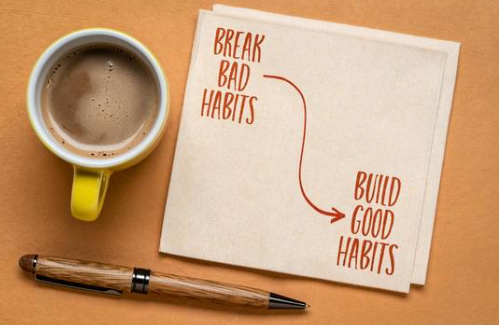
If I asked you to describe your ideal workday, what would you say? If you are like most, you might respond, "Calm, focused, accomplished and organized. I would have ample energy for both my work and my personal life. There would be time to exercise, eat well, relax and get the sleep I need."
Sadly, actually experiencing this utopia is rare. Due to high-demand jobs, over-packed schedules and general anxiety, the majority walk around stressed, overwhelmed, disorganized, distracted and exhausted.
Although we often walk around in a state of disorganization and frenzy, the human brain is a great organizational network. Due to the nature of our modern world, though, our brains have forgotten how to utilize that network. Distractions, due in significant part to technological advances and our ever-present devices, are causing a state of chronic frenzy to be our new norm. Thus, our environment is causing a "distraction epidemic" that is on par with the obesity epidemic.
A chaotic, frenzied mind leads to impulsivity, chronic negativity, increased stress levels and multitasking. In an attempt to get everything done in our limited number of hours each day, we constantly divide our attention. However, the scattered brain, in attempting to attend to more than one task at a time, leads to a higher propensity for error, missing essential information and emotional cues.
When we struggle to sustain attention, negative emotional frenzy (worrying about other things on our to-do list, ruminating over a conversation, thinking about how tired, stressed or hungry we are) is like static and impairs the brain's ability to focus and learn.
To improve your quality of life, productivity and overall health (interestingly, there is a high correlation between a disorganized mind and medical conditions leads to poor health), it would make good sense to retrain our brains. Training our brains to focus productively and satisfyingly is possible. Just as a muscle grows stronger with strength training, we can similarly build new brain capacity by developing new habits.
Brain Training 101
Start with a mental shift. Recognize that self-care is not a luxury but a necessity. Irritability, fatigue, hunger and feeling overwhelmed are often the results of a lack of self-care. The sleep-deprived, hungry, sedentary, stressed-out brain does not function optimally.
Sleep is a key factor in your training. Avoid the urge to stay up to get more work done, as it is counterproductive for long-term productivity. Instead, commit to getting the proper amount of sleep each night so you wake up refreshed and focused.
During the day, it is imperative to feed your body with proper nutrition. Eat healthy meals and snacks throughout the day, drink plenty of water to stay hydrated, and frequently move to circulate oxygen and fuel to your brain.
Meditation, yoga or any mindfulness practice have also been proven to improve brain function. These practices train our brains to slow down, stay focused and shut out the constant chatter of our internal voice and the distractions around us.
Next, stop multitasking! Retrain your brain to focus on one activity, one task, one conversation at a time. If something is of value, give it your full attention. If you can't, schedule it for another time. If you are easily distracted, practice having "focus sessions" each day. Start by designating a short block of time each day and choose an activity to which you will devote full attention. You may start with only 15 to 20 minutes, but slowly build over time. With consistency, this practice will become more automatic and you'll notice an improvement in your overall efficiency.
To implement a successful focus session, implement these practical steps:
- State your intention: "For the next 20 minutes, I will create an outline for my next blog post".
- Turn off your phone, email, notifications and other distractions. Clear your desk.
- Ask your brain to stay focused for a set pre-determined time (maximum 60 minutes).
- Set a timer for the pre-determined time. Do nothing else until the timer goes off.
- Reward your brain with a short break to do something fun and relaxing once completed.
- Schedule and practice several focus sessions per day, slowly increasing the time you work.
With a combination of elevating self-care to a priority along with several focus sessions per day, you can retrain your brain to get more done!













